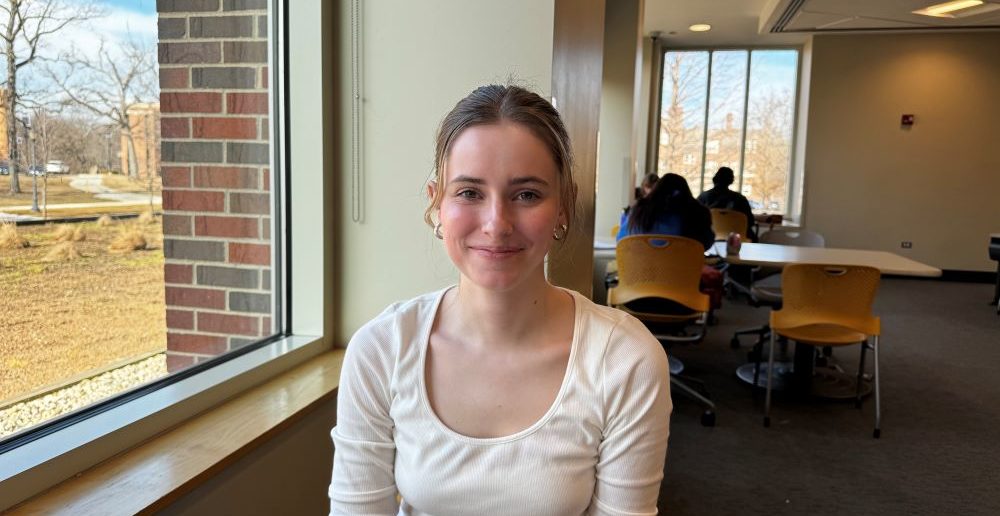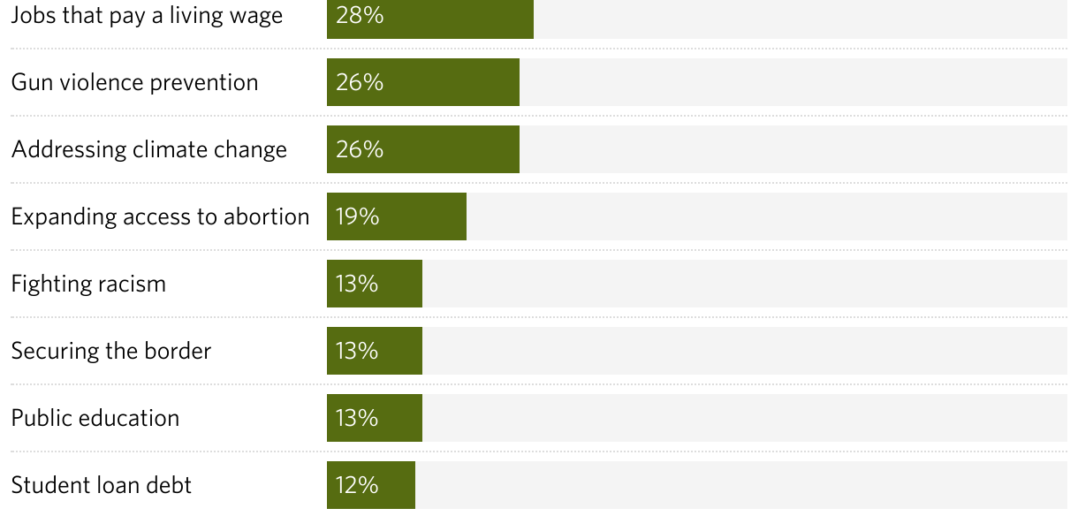By Kairo Fuller, Diya Kandal, Caelan McMasters, Juan Perez, and John Tangel
How will today’s U.S. presidential frontrunners win the votes of college students who are younger than them by more than half a century? Not easily, it appears.
With the Illinois primary approaching next month [March 19], some Lake Forest College students say it’s very difficult to relate to either President Joseph Biden or former President Donald Trump. Biden, 81, is the oldest president to be sworn into office while Trump, the leading Republican contender for the White House, is 77.
Like many other young voters, Libby Moog, 20, prioritizes issues such as gun violence and climate change. But the generational disconnect means the top presidential candidates aren’t representative of the general public and their concerns, much less Gen Z, she says.
“If people over 75 aren’t allowed to drive then they shouldn’t be running our government,” said Moog, a sophomore.
Dennis Cherepanov, a 25-year-old senior, agrees. “[Politicians] are getting older and older, [and] newer voices aren’t filling the [age] gap,” he said.
In recent years, young adults have voted at historic rates and led major movements on issues like gun violence, climate change, and racial justice. Their high turnout helped fuel Democrat victories in the 2022 midterms, and they could significantly impact who turns out to be the victor in November, media reports and researchers suggest.
“Together with the youngest Millennials, young people ages 18-34 are poised to be a potential force in the next presidential election,” concluded a November 2023 poll by The Center for Information & Research on Civic Learning and Engagement (CIRCLE), a non-partisan research organization.

The poll found that 57% of those surveyed said they were “extremely likely” to vote in 2024, and another 15% said they were “fairly likely” to cast a ballot in the election. It also reported that top issues in this age group are inflation/cost of living, jobs that pay a living wage, and gun violence in addition to reproductive rights and student debt relief.
At Lake Forest College, Gaza and the looming climate crisis are the main concerns of many students, says James Marquardt, a professor of international relations. He says those sentiments align with those of their peers at other educational institutions.
“Immigration matters, too, but my sense is that many students want a more generous asylum policy,” he said.
Marquardt says the students he knows desire an economy that prioritizes investments in their generation, offering well-paying jobs, affordable housing, accessible healthcare, family leave, and a sustainable environment.
However, he is quick to note that “the main problem is that far too many choose not to participate in the political process, such as by voting.”
That includes students like 19-year-old freshman Tiana Lambkin, who says she doesn’t intend to go to the polls.
“As a college student, I don’t feel like I can really help myself or the system [by participating in] current politics, especially when I think about what I’m paying to go to college,” she said.
The 2024 primary election in Illinois will take place on Tuesday, March 19, with early voting already underway. Eligible students can register to vote at one address they consider the place where they live, such as their family’s home or their university.
Ari Collins, a 21-year-old junior, says her top issues are reproductive rights and immigration. But that doesn’t make her ballot choice any easier, she says.
“It’s basically picking your poison between candidates,” Collins said.
It would help if the leading presidential candidates had college-age children, says Ryan Caparrelli, a 21-year-old junior.
“[They need] to understand what Gen Z is going through,” he said.
Meanwhile, some international students who are not eligible to vote in the U.S. have their own concerns, given that the outcome in November could profoundly affect them and their countries of origin. Lake Forest College has a 19% international student population from more than 108 countries.
Ollie Francis, an 18-year-old freshman from the United Kingdom, says he plans to vote in coming elections when he is eligible. For now, though, he says the “low qualifications” of the candidates is his biggest concern.
Mariam Blanco, 21, who came to Lake Forest from Nicaragua, says social issues such as abortion, immigration, and LGBTQ+ rights weigh heavily on her. As an international student, she wants to live in a more inclusive country. While the economy is an important factor in the election, she says she hopes social issues are top priorities for young voters in the U.S.
“I don’t want to work and live in a place where they don’t value me as a human being,” Blanco said.
Additional information was provided by members of the JOUR 120: Introduction to Journalism class.
Voting Resources:


